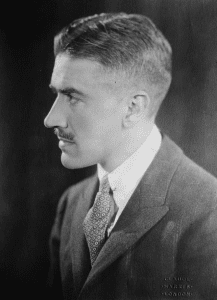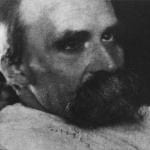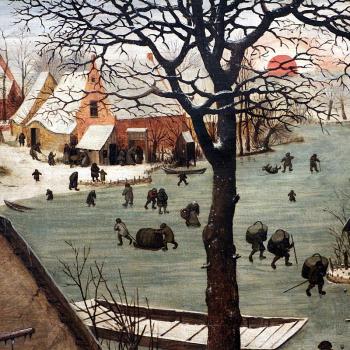
Teaching has brought me back to Nietzsche once again. This is always a revivifying process, a challenge to my faith, my intuited convictions (if that’s not an oxymoron), and every other belief I attest or bear out in my actions. It has, however, led me to consider the extremes possible in this time of rampant extremes. Where there is isolation, there is time for thinking (or its suppression). Perhaps this is all nonsense afforded by too many days spent domestically in suburban New Jersey. Perhaps not. Regardless, it is a personal experiment: how would my politics be changed if I did not have faith?
In the US, we tend to have a straightforward view: the “Left” is secular, the “Right” is religious. Just look at the French Revolution after all! Religious people love hierarchy, order and property; the Left is enamored of equality, anarchy—whatever else. Of course, there are exceptions. Even the dogmatists recognize this. They confirm the rule after all. Look at the Abbé Grégoire or Charles Maurras—exceptions, exceptions. Exceptions abound.
They abound so much, in fact, that we might call into question this simple binary. It may be that the underlying premises of certain religious (or non-religious) positions may tend otherwise than expected. This Nietzsche has suggested to me. What to make of it?
Without rehashing the story of my conversion, suffice it to say that I was moved broadly “Leftward” by becoming more religious. It just made sense to me. What I found laid out in the Bible and in Church tradition simply tended in that direction. I saw saints who took the side of the poor. It was a no-brainer. I don’t say that to convince you, reader—I share it because, in fits and starts, it’s what happened.
On the other hand, reading Nietzsche has reacquainted me with the idea that atheism might (even ought) to pull one to the Right. Here, “Right” does not mean “pro-free market” or “Trumpian.” It means orderly, hierarchical, aristocratic, comfortable with inequity of one sort or another—the kind of “conservatism” we might associate with regimes as distinct as the Ancien Régime, Mussolini’s Italy, and death squad-ridden El Salvador. These need not spurn the poor and the downtrodden; perhaps they have a sense of what used to be called “noblesse oblige.” They, however, are united in comfort with relatively rigid hierarchies of power, influence, and class.
My reading Nietzsche once again leaves me perplexed: why do we associated these groups with religion? Certainly, religion has been a force for conservation in this way or that, but that shouldn’t mean such a direct correlation. Things do seem to be changing—the Alt-Right is filled with atheists, for example. Many a Right-wing leader seems only superficially committed to religion. The Left, of course, has long had an anti-clerical streak. But not always: there is the ELN in Colombia, a liberation theology militant group, or, if you prefer, Martin Luther King Jr.’s campaign for racial and economic equality.
Here Nietzsche comes in (or at least he has come in for me). His criticisms of what he calls variously “slave morality,” “the priestly ideal,” and the “ascetic ideal” directly attack the egalitarian aspects of religious faiths. Specifically, he seems to take issue with Judaism, Christianity, Buddhism, and Brahmanic Hinduism (and presumably those groups descended from these). He contends that these faiths are secretly selfish, that they train their adherents in resentfulness and hatred of better; these are the religions of slaves, of those who could not have power in the old world and so forged a new world from the ashes of the splendorous old one. You might say this runs counter to everything you believe: even if it’s wrong, is not religion mostly concerned with sacrifice, love, and other virtues so ubiquitously supported as to be obvious? Are not critics of religion even in the business of saying “religion is great, except…”













